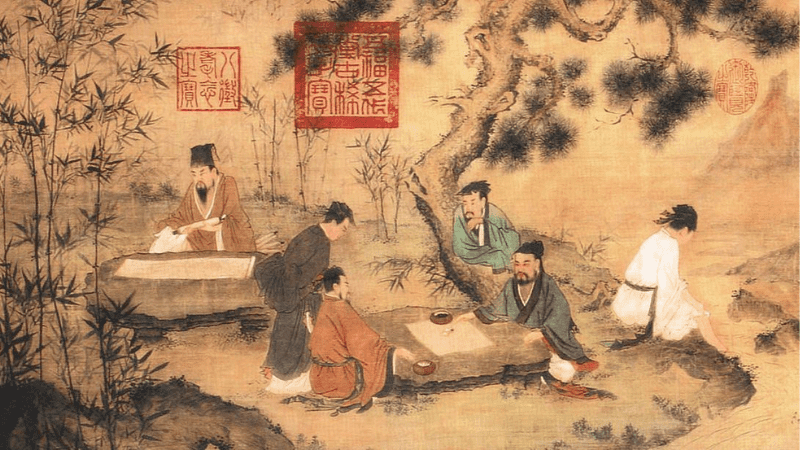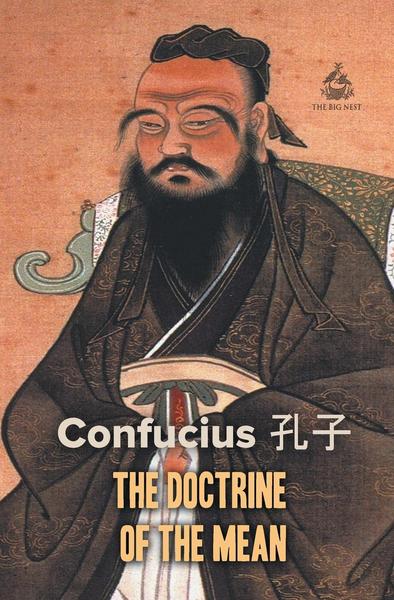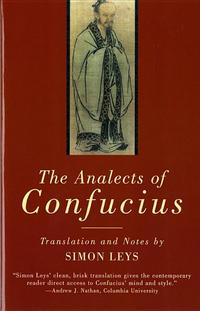The Best Confucianism Books for Beginners
If you want to learn about Confucianism, you're in luck! There are a lot of great books on the subject. In this blog post, we'll share some of the best books on Confucianism for beginners. We'll give you a brief overview of each book and also tell you why it's a good choice for beginners. So, without further ado, let's get started!
1. Analects of Confucius
The first book we recommend is the "Conversations of Confucius". (This book contains a collection of sayings and teachings of the Chinese philosopher Confucius. It is essential reading for anyone who wants to learn about Confucianism and provides an excellent foundation for further study.
You can buy the book here, but we found that it listens very well as an audiobook. For about 10USD you can get it (and if you're new to Audible, you can get it for free via this link).
The book itself has about 64,000 words and is divided into 20 so-called books, which are different writings of Confucius and can be considered as chapters. Since the 20 books are self-contained, you can conveniently read the Analects in sections.
Is Confucius' Conversations worth reading?
Since the book has been sold and read millions of times and has influenced the culture of entire countries, it is therefore considered worth reading. The topics and philosophical concepts covered are known to help gain wisdom and a calm perspective on life.
2. The doctrine of the middle way
The second book we recommend is "The Teaching of the Middle" (also known as Zhongyong). This book was written by Confucius' grandson, Zisi. It expands on the ideas presented in the Analects of Confucius and describes in more detail how to live a good life in the spirit of Confucianism.
The teaching of the middle way is a text full of symbolism and instructions to help you become perfect. The middle way is also called the "unshakable fulcrum" or zhongyong. Zhong means bent neither one way nor the other, and yong means unchanging. In James Legge's translation, the goal of the middle is to maintain balance and harmony by keeping your mind in a state of constant equilibrium.
People who follow the center are on a path of duty and must never leave it. A good person is careful, gentle and does not look down on others. They always behave naturally, according to their status in the world. Even ordinary people can bring meanness into their lives, as long as they do not go too far beyond what is natural for them.
The Teaching of the center stands for moderation, righteousness, objectivity, sincerity, honesty and decency.
The most important principle in The doctrine of mediocrity says that you should never do anything in excess.
The doctrine of the middle way is divided into three parts:
- The Axis - Confucian Metaphysics
- The process - Politics
- The Perfect Word/Sincerity - Ethics (The Great Digest and Unwobbling Pivot, 1951).
Is The Doctrine of the Mean Worth Reading?
The teaching of the Middle Way is a fantastic addition if you are familiar with the basics of Confucianism.
3. The great lesson
The third book we recommend is "The great learning". This book was also written by Confucius' grandson Zisi. The book is about the importance of education and how it can help one live a good life.
Lukas and I also believe that lifelong learning is of fundamental importance. Do you?
To this end, the book explains certain basic principles:
- Achieve a balance and refine your morals to match the Path is consistent. (The Path is the Tao).
- By being quiet and thinking a lot, you can come to inner peace. When you are calm and have had time to think, you can see the path more clearly.
- Knowing what is important and setting priorities is important to becoming a better person. This way you can focus on what is most important and follow the teachings of Confucianism.
- You have to get your personal life in order before you can make progress in getting your state in order. This means taking care of yourself and learning about things (the latter is known as "exploring things").
- Everyone can learn and improve, no matter what their social, economic or political status. This means that learning success is the result of one's own effort and not the result of an innate inability to learn.
- To learn successfully, one must balance all aspects of learning. No single area of learning can be neglected without the student's ability to learn suffering.
Is The Great Learning Worth Reading?
You may have already guessed: The great learning is definitely worth reading. It is one of the most fundamental books of Confucianism. Especially the fact that it was written by a person who was very close to Confucius should not be overlooked.
4. Mencius
The fourth book we recommend is Mencius. This book was written by the Chinese philosopher Mencius. A creative title, isn't it? It contains his thoughts about human nature and how to live a good life.
The name Mencius can be a bit confusing, as it seems rather non-Chinese to us. Its appearance can easily remind us of a Greek or Latin word, but if you look at the Chinese version, everything becomes clearer: Mèngzǐ
The book Mencius consists of seven chapterseach of which consists of two halves. These chapters represent dialogues about certain philosophical arguments. Mostly in the form of conversations between Mencius and other philosophical thinkers.
But the chapters also contain Mencius' own reflections (mostly in short sentences) throughout the book.
The core of the book is Mencius' famous idea that there is an inherent nature in man that is inherently good - this is the idea for which he is best known.
Is Mencius worth reading?
I wouldn't recommend starting with Mencius if you're starting with Confucianism (who would have thought, since it's in 4th place). But: The book is very interesting and is still considered beginner friendly. However, it can be a bit dense and confusing here and there (there's no shame in reading the chapters over and over - I do it all the time). If possible, start with one of the other three books on this list first.
5 The Analects of Confucius: Translation and Notes
Finally we have "The Analects of Confucius: Translation and Notes.". This English translation of the "Analects" is by Simon Leys and is widely considered one of the best versions of the book. If you are looking for a deeper understanding of Confucianism, this is a good choice.
Especially the historical background can be a great help for the understanding of this timeless reading. But also the numerous notes on language, translation and interpretation are invaluable for the reader and something that is missing in the original version of the book.
Is The Analects of Confucius: Translation and Notes worth reading?
This version of the Analects is well worth reading if you are looking for background information and more context. However, it might be a bit distracting and limiting when it comes to finding your own thoughts. That's why I usually recommend the normal version first - you can always try this one later.
We hope you found this list of the best Confucianism books for beginners helpful. Remember that there is no one "right" way to learn about this philosophy, so find a book that speaks to you and dive in! Who knows, you might find that Confucianism has a lot to offer you as well.
If you liked this article, you might also want to read about the most beginner friendly books about Taoism experienced. Feel free to check out the article!
Bonus Recommendation:
Another excellent choice for beginners is "The Art of War". This book was written by Sun Tzu a Chinese military general who is said to have lived in the sixth century BC. The book is not specifically about Confucianism, but it contains much wisdom that can be applied to many different areas of life. For example, Sun Tzu talks about the importance of strategy and planning, two things Confucians value highly. As long as you replace the enemy with the specific problem in your life, you can "The Art of War" be a great tool.
Do you have any favorite books about Confucianism? Let us know.












